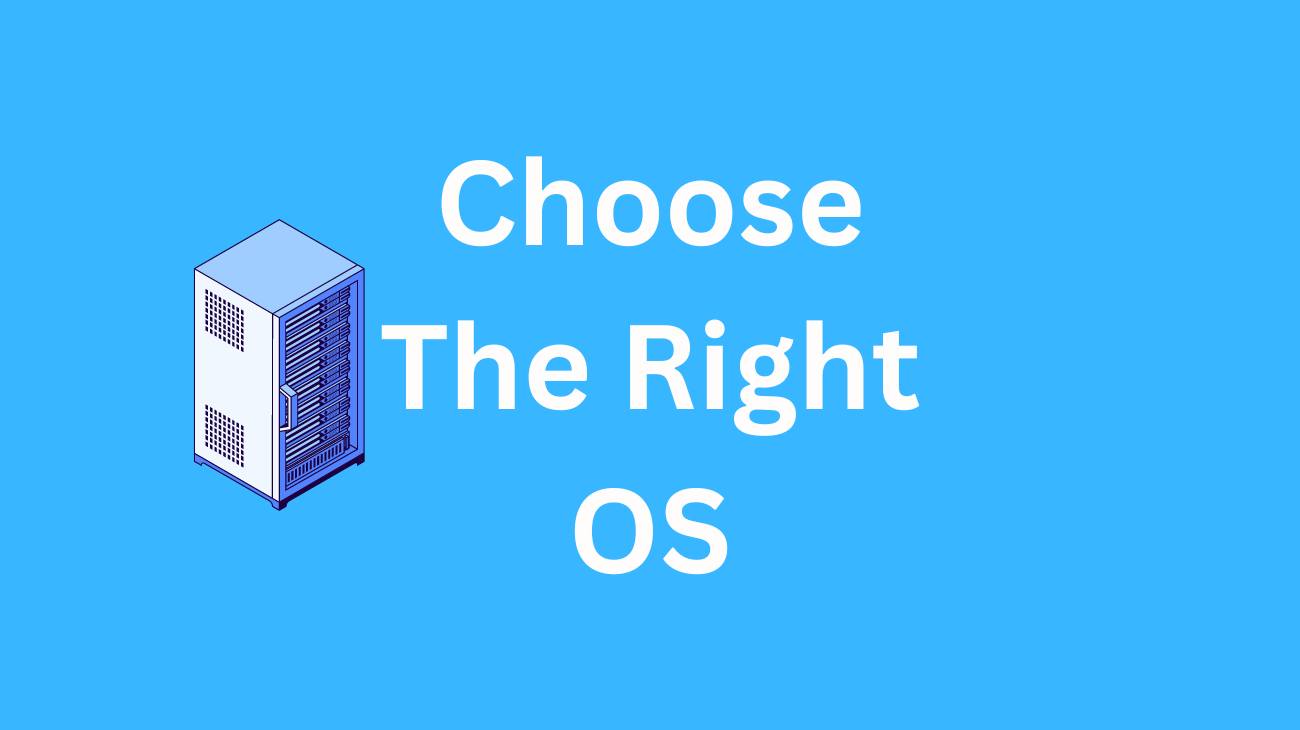When it comes to setting up a Virtual Private Server (VPS), one of the crucial decisions you need to make is selecting the right operating system (OS) such as Ubuntu. The operating system serves as the foundation for your VPS, affecting its performance, security, and compatibility. In this guide, we’ll delve into the factors you should consider when choosing the perfect OS for your VPS, ensuring optimal functionality and efficiency.

ALSO READ: The Ultimate Guide to Choosing the Right Domain for Your Website
Table of Contents:
- Understanding the Role of the OS in a VPS
- Popular OS Choices for VPS
- Linux Distributions
- Windows Server
- Factors to Consider When Choosing an OS
- Technical Proficiency
- Specific Application Requirements
- Security Considerations
- Community and Support
- Cost Considerations
- Performance Comparison: Linux vs. Windows
- Installation and Setup Process
- Maintenance and Updates
- Conclusion
Understanding the Role of the OS in a VPS
The operating system of your VPS is akin to the heart of your server. It dictates how resources are managed, how applications run, and how data is stored. The choice between different OS options can significantly impact your VPS’s stability, security, and performance.
Popular OS Choices for VPS
There are two major categories of OS choices for VPS: Linux distributions and Windows Server.
Linux Distributions: Linux is a preferred choice for many VPS owners due to its open-source nature, flexibility, and extensive community support. Some popular Linux distributions include:
- Ubuntu
- CentOS
- Debian
- Fedora
Windows Server: Windows Server, developed by Microsoft, is a suitable option for those who are more comfortable with a Windows environment or require compatibility with Windows-specific applications.
Factors to Consider When Choosing an OS
Technical Proficiency: Consider your familiarity with the chosen OS. If you’re well-versed in Linux, opting for a Linux distribution might be a more seamless experience. Similarly, if you’re more comfortable with Windows environments, Windows Server could be the better choice.
Specific Application Requirements: The applications you intend to run on your VPS play a pivotal role in your OS decision. Some applications are more compatible with certain OS types. For instance, Linux is often favored for web hosting, while Windows might be better for ASP.NET applications.
Security Considerations: Security should be a top priority. Linux is renowned for its robust security features and is often the choice for servers that require enhanced security measures. However, Windows Server has made substantial security improvements in recent versions.
Community and Support: Linux benefits from a vast and active community that provides continuous support and a wealth of online resources. Windows Server also offers reliable support through official channels and community forums.
Cost Considerations: Linux distributions are typically free and open-source, making them an economical choice. In contrast, Windows Server involves licensing costs, which should be factored into your decision.
Performance Comparison: Linux vs. Windows
In terms of performance, Linux has historically outperformed Windows Server in resource utilization. Linux consumes fewer resources, making it ideal for servers with limited hardware. Windows Server might be more suitable for applications that demand a Windows environment.
Installation and Setup Process
Linux distributions are often lauded for their ease of installation and configuration. They come with package managers that simplify software installation and updates. Windows Server installations have become more streamlined but might still require more user input during setup.
Maintenance and Updates
Both Linux and Windows Server offer regular updates to enhance security and functionality. Linux updates can often be managed through a single command, while Windows Server updates might involve more steps.
Conclusion
Selecting the right OS for your VPS is a decision that should not be taken lightly. Consider your technical skills, application requirements, security needs, community support, and budget. Linux distributions provide flexibility, security, and a strong community, while Windows Server caters to those who are more comfortable with Windows environments or require Windows-specific applications. By evaluating these factors, you can make an informed decision that ensures your VPS operates seamlessly, efficiently, and securely.
Get Your VPS/Dedicated Server Here





One Comment on “Choosing the Right OS for Your VPS: A Comprehensive Guide”